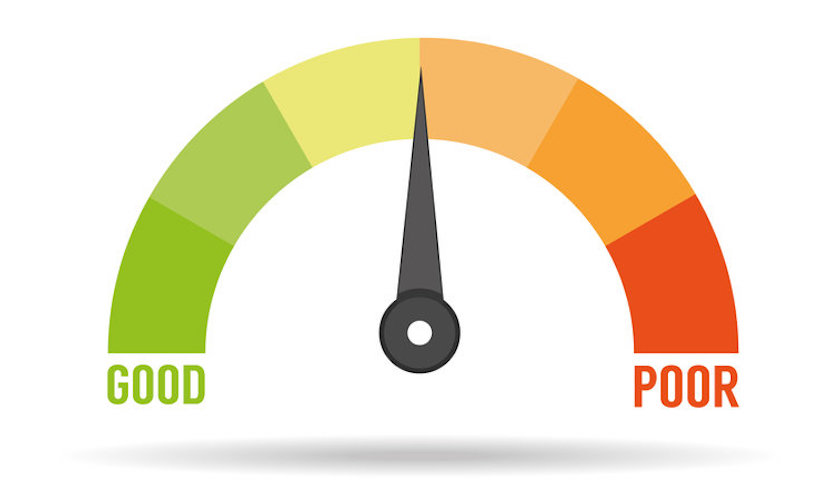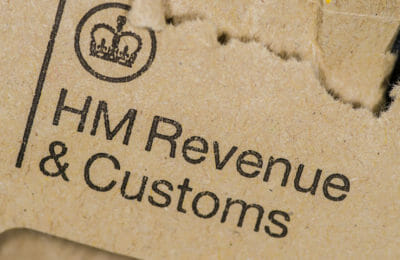These days, people are much more savvy about their credit rating. Mobile apps from the main credit reference agencies mean we can check our personal credit scores in an instant. We can also check for signs of identity fraud. But when it comes to checking a business credit rating, it seems we’re not as proactive. Indeed, credit reference agency Experian estimates that nearly two-thirds of business owners have never checked their credit rating!
Even so, staying on top of your business credit rating is important. A good rating can help you get better deals on loans and overdrafts. A bad one can make it hard to get credit, or even to recruit new suppliers.
In this post, we take a look at how business credit ratings work, tell you who can see them and suggest ways of improving your score.
What are business credit ratings?
Business credit ratings are very much like personal ones. Different credit reference agencies collect information about your business and assign it a credit score. Companies that offer this service include Experian, Equifax, Dun and Bradstreet and Creditsafe. Certain online services allow you to check the credit scores published by different agencies.
Unlike personal credit scores, anyone can look up a business credit rating. If a competitor, supplier, customer or anyone else wants to know your rating, they can find it out.
What does my business credit score mean?
Different agencies have different credit scoring systems. However, the principle is still the same – the higher your score, the more creditworthy your business will be.
It’s also worth noting that major banking institutions have to share information about SME customer (with a turnover of less than £25m) with selected credit reference agencies. This information includes business current accounts, credit cards and loans.
A number of factors can affect your business credit score. These include:
- How often you’ve applied for credit
- Whether you have current business loans or overdrafts
- Whether or not you’ve missed loan payments
- Remaining within your overdraft limits or not
- Whether you file your business accounts on time
- Filing your tax returns on time
If you’ve read this far, you may well have gone and checked your business credit rating online. Now let’s look at some of the ways of improving it.
Ways to improve your business credit rating
- Pay on time!
If you pay invoices and creditors on time (or even early), it can improve your score. - Don’t neglect your accounts
If you don’t file your accounts with Companies House on time, lenders may think you’re in financial trouble and your score can drop. Ask THP to make sure your accounts are properly filed by the right deadline. - Be choosy about applying for credit
Only apply for credit when it’s strictly necessary. The fewer applications you make, the better it is for your score. One tip is to ask for a quotation when you need business finance – these don’t get entered on your credit file. - Keep on top of your personal credit score
If your business credit score is low, a good personal credit rating could help you borrow from some lenders. - Check your customers and suppliers
Making regular checks of your customers’ and suppliers’ credit rating is also wise. If any of them appear to be getting into financial difficulties, you may be able to prevent damage to your own business.
What next?
If you haven’t checked your business credit rating recently, you can do it online here or here. Whether or not you have a good score, it’s a wise idea to keep an eye on it and do what you can to improve it. We can help you do this by making sure your accounts are filed before deadline and ensuring your tax returns are timely and accurate. For more information, drop us a line today.
Get in touch by filling out the form, or by calling us on 0800 6520 025
About Mark Ingle
Owner-manager business specialist, Mark Ingle is key to building relationships with clients at the Chelmsford office. “I like to see clients enterprises grow and succeed.” Mark explains, “The team here has a lot to offer and I can see a lot of new businesses responding to that.”
Having worked for accountancy practices in London and Essex, Mark has worked with a range of companies varying in size. For Mark, THP stands out for its “local firm approach with the resources of a larger practice.”
Although a keen traveller, Mark is focused on giving his clients at THP the highest service, “Right now, I aim to help the clients we have to the best of my ability which will help me attract more of the right clients in the future.”
Mark’s specialist skills:
- Annual and Management Accounts
- Tax and VAT
- Strategy and Business Planning
- Marketing and Sales
- Business Development












